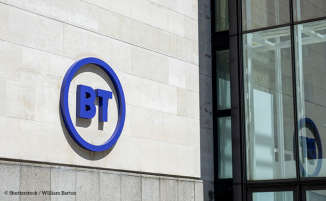Complex claims are being brought against Mastercard and Visa in an ongoing decade-long saga involving over 1,800 corporate claimants across the hospitality, arts, financial services, and leisure sectors. With three different strands of cases – Merricks v Mastercard, collective cards, and umbrella proceedings – lawyers involved are finding themselves in court almost weekly. The first of these, the Merricks claim, is the second collective proceedings to have ever been brought in the CAT, starting seven years ago. Judgment on a causation hearing came through in February, examining the veracity of the central facts, which ultimately determined that on the factual basis, the European interchange fees did not drive the UK fees. Cited as a success by Freshfields, a spokesperson for the firm commented, ‘this is a very significant judgment. It finds that over 90% of Mr Merricks’ case fails factually’. If the judgment is left to stand, the value of the claim will be reduced by £9bn from a total of £10bn. Merricks’ lawyers have indicated their intention to push for a trial on a counterfactual scenario, which if successful, would bring this amount back into play. Continue reading “Mastercard proceedings”
Russian aircraft claims
In line with the trend towards mega-trials, the Commercial Court in October is due to hear the highly publicised Russian aircraft insurance claims, with aircraft lessors bringing multiple proceedings across a range of jurisdictions.
The losses arise from the detention of hundreds of commercial aircraft in Russia due to its invasion of Ukraine and the subsequent implementation of international sanctions against it. The litigation encompasses complex multi-party insurance claims, involving expert evidence across Russian politics, civil aviation, insurance underwriting, and US sanctions. Continue reading “Russian aircraft claims”
Gormsen v Meta
Following the refusal of the CAT to allow Dr Gormsen to commence collective proceedings in February 2023, a hearing at the start of January considered the reformulated claim. The revised claim alleged that Meta had abused its dominant position through its collection of ‘off-Facebook data’, and had combined this with data gathered on the platform to enable extremely targeted advertising. Through this collection, and arguing it formed a ‘take-it-or-leave-it’ condition, it was argued Meta had imposed an unfair trading condition on its users, who subsequently had suffered losses of over £2bn.
The reformulated claim was ultimately successful, with the CAT satisfied that there was a clear blueprint to trial laid out and that the ‘Pro-Sys’ test was met. The decision in the certification hearing was eagerly anticipated, in providing insight to the CAT’s ongoing approach to certifying class representatives, and whether they would continue with a low-bar approach. The CAT granted a collective proceedings order (CPO) based on the new application, holding there was an arguable and triable case against Meta. It was clarified that the CAT will be looking closely at funding arrangements at the appropriate stage, and, that collective proceedings were largely encouraged, with the judgment stating that ‘the certification process should be viewed in the light of access to justice’.
Michael Jacobs at Boies Schiller contends that the saga demonstrates the approach of the CAT to ensuring only meritorious claims are heard. ‘At the certification stage, you used to think the CAT would green light everything. In Gormsen v Meta, the tribunal said “hold on, the claim looks badly formulated”, and sent it away to reformulate. The CAT just greenlit bringing the reformulated claim forward. There are checks and balances in place to ensure claims aren’t entirely ill-conceived.’
For Liza Lovdahl Gormsen: Greg Adey (One Essex Court), Robert O’Donoghue KC and Sarah O’Keeffe (Brick Court Chambers) and Tom Coates (Blackstone Chambers) instructed by Quinn Emanuel Urquhart & Sullivan
For Meta: Tony Singla KC, Marie Demetriou KC and David Bailey (Brick Court Chambers), Andrew Lomas (One Essex Court), and James White (Henderson Chambers) instructed by Kim Dietzel and Stephen Wisking (Herbert Smith Freehills)
Justin LePatourel v BT
2018 saw Ofcom decide that BT held significant market power in relation to stand-alone landline customers, finding that the company had been overcharging customers by at least £7 a month. Due to the significant market power exerted by BT, Ofcom and BT agreed to reduce its prices going forward. However, compensation was not provided for consumers for the previous years of overcharging, nor for clients who had purchased both internet access and phone access.
The initial claim, filed in 2020, saw class representative Justin LePatourel seeking compensation on behalf of these consumers. In the first-ever opt-out collective action to reach trial, it is set to be closely watched by claimant and defendant firms alike, and is anticipated to have significant effects on the class action landscape in England and Wales. Continue reading “Justin LePatourel v BT”










